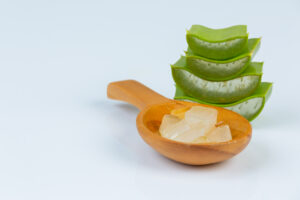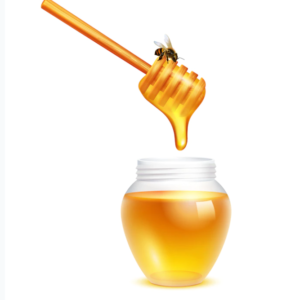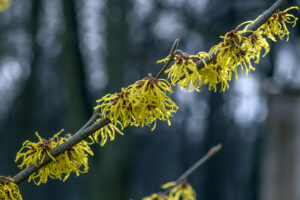Acne is a common skin condition that affects people of all ages. It occurs when hair follicles become clogged with oil and dead skin cells, resulting in pimples, blackheads, and whiteheads. While acne is often associated with hormonal changes during puberty, it can also be triggered by stress, diet, and genetics.
While there are many over-the-counter and prescription treatments for acne, some people prefer to use natural remedies to avoid the side effects of these treatments.
In this blog post, we’ll explore some of the most effective natural remedies for acne.
Tea tree oil :
Tea tree oil is a natural antibacterial and anti-inflammatory agent that has been used for centuries to treat various skin conditions, including acne. Studies have shown that tea tree oil can reduce the number and severity of acne lesions. To use tea tree oil, dilute it with a carrier oil (such as jojoba oil or coconut oil) and apply it to the affected area with a cotton ball or swab. It is important to patch test the oil first to ensure you are not allergic to it.

Aloe vera :
Aloe vera is a succulent plant that has anti-inflammatory and antibacterial properties. It is commonly used to soothe sunburns and other skin irritations, but it can also be used to treat acne. Apply a small amount of aloe vera gel directly to the affected area or mix it with tea tree oil for added benefits.
If you want to know more benefits of Aloe Vera, then read this blog as well – Aloe Vera would do wonders for skin | Blessed to know this

Apple cider vinegar :
Apple cider vinegar has astringent and antibacterial properties that can help to unclog pores and kill acne-causing bacteria. Mix equal parts of apple cider vinegar and water and apply it to the affected area with a cotton ball or swab. It is important to dilute the vinegar as it can be too harsh for some skin types. Avoid using apple cider vinegar if you have sensitive skin.

Honey :
Honey is a natural antibacterial agent that can help to reduce inflammation and redness associated with acne. Apply a small amount of honey directly to the affected area or mix it with tea tree oil for added benefits. Raw honey is preferred as it has more beneficial properties than processed honey.

Turmeric :
Turmeric is a spice that has anti-inflammatory and antimicrobial properties. It has been used for centuries to treat various skin conditions, including acne. Mix a small amount of turmeric powder with water to form a paste and apply it to the affected area. Leave it on for 10-15 minutes before rinsing it off with warm water.

Witch hazel :
Witch hazel is a natural astringent that can help to reduce inflammation and tighten pores. It is commonly used in toners and can be applied directly to the affected area with a cotton ball or swab.

Green tea :
Green tea is a natural source of antioxidants and has anti-inflammatory properties. Drinking green tea or using it topically can help to reduce inflammation and redness associated with acne. To use green tea topically, steep a green tea bag in hot water for a few minutes and then let it cool. Apply the tea bag directly to the affected area for a few minutes.

Zinc :
Zinc is a mineral that has anti-inflammatory and antibacterial properties. It is commonly used in supplements and can also be found in foods such as oysters, pumpkin seeds, and chickpeas. Taking zinc supplements or eating zinc-rich foods can help to reduce the severity of acne.

GET RID OF ACNE MARKS
Acne marks, also known as post-inflammatory hyperpigmentation (PIH), are a common concern for people who have had acne. These marks can take a long time to fade on their own, but there are several ways to help speed up the process.
Exfoliation :
Exfoliating the skin can help to remove dead skin cells and promote cell turnover, which can help to fade acne marks faster. However, it’s important to avoid over-exfoliating, as this can damage the skin and make the marks more noticeable. Look for gentle exfoliants that contain alpha-hydroxy acids (AHAs) or beta-hydroxy acids (BHAs), and use them no more than 2-3 times per week.
Chemical peels :
Chemical peels are a type of exfoliation that use acids to remove the top layer of skin. This can help to fade acne marks faster and improve the overall texture and tone of the skin. However, it’s important to seek the advice of a dermatologist before trying a chemical peel, as they can be harsh on the skin and may cause irritation or damage if not done properly.
Retinoids :
Retinoids are a type of vitamin A derivative that can help to promote cell turnover and fade acne marks faster. They are commonly used to treat acne, but they can also be effective in reducing the appearance of acne marks. Retinoids can be found in prescription-strength creams and gels, or in over-the-counter products that contain retinol.
Vitamin C :
Vitamin C is a powerful antioxidant that can help to brighten the skin and fade acne marks faster. It works by inhibiting the production of melanin, which is responsible for the darkening of the skin. Look for skincare products that contain vitamin C, such as serums or creams, and use them daily for best results.
Sun Protection :
Exposure to the sun can make acne marks more noticeable, as UV rays can cause the skin to produce more melanin. It’s important to wear sunscreen with an SPF of 30 or higher every day, even on cloudy days. Look for a sunscreen that contains zinc oxide or titanium dioxide, as these ingredients provide broad-spectrum protection against both UVA and UVB rays.
CONCLUSION:
There are a variety of effective home remedies for getting rid of acne naturally. These remedies include using tea tree oil, honey, aloe vera, apple cider vinegar, and green tea, among others. By incorporating these remedies into your skincare routine and making healthy lifestyle choices, such as maintaining a healthy diet and staying hydrated, you can reduce the frequency and severity of acne breakouts.
Additionally, for those dealing with acne marks or post-inflammatory hyperpigmentation, there are various treatments such as exfoliation, chemical peels, retinoids, vitamin C, and sun protection that can help to fade these marks faster. With patience and consistency, these remedies and treatments can lead to clearer, smoother, and healthier-looking skin.



